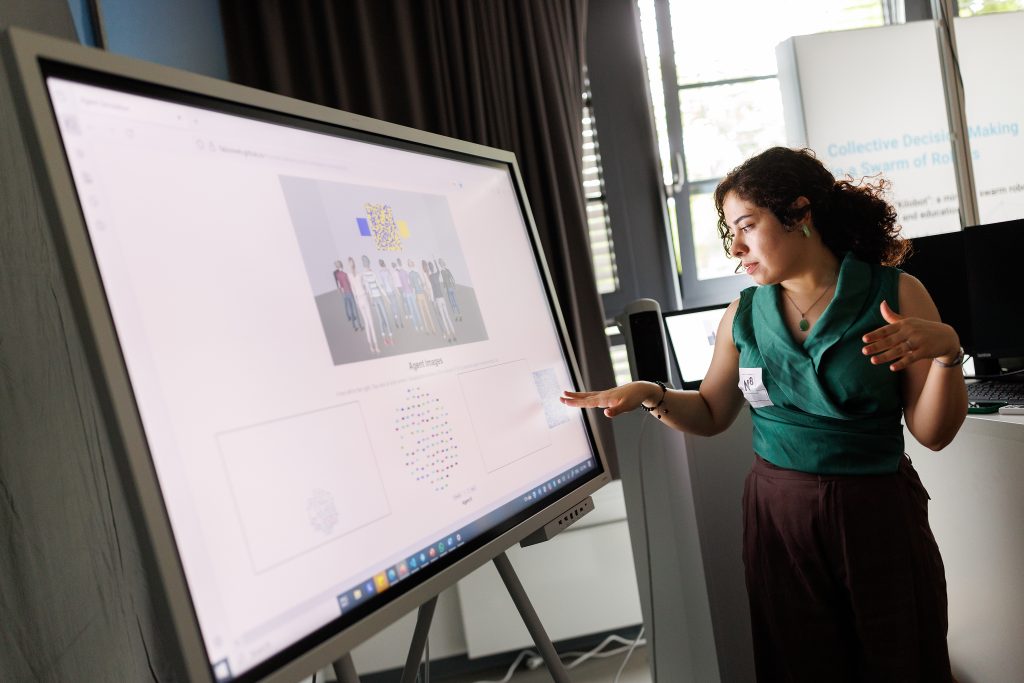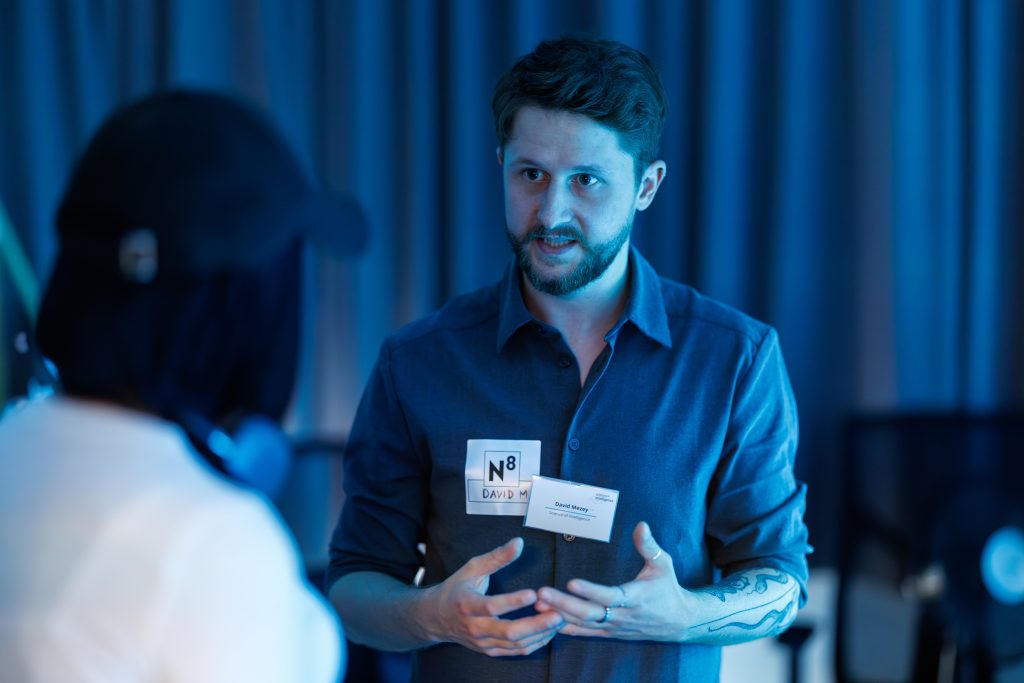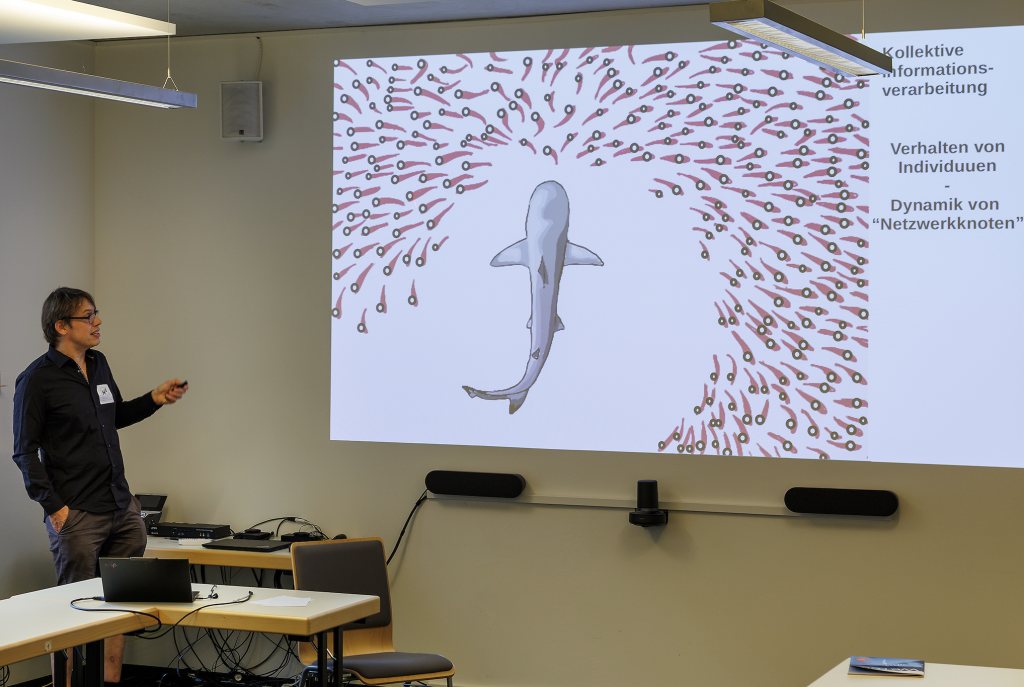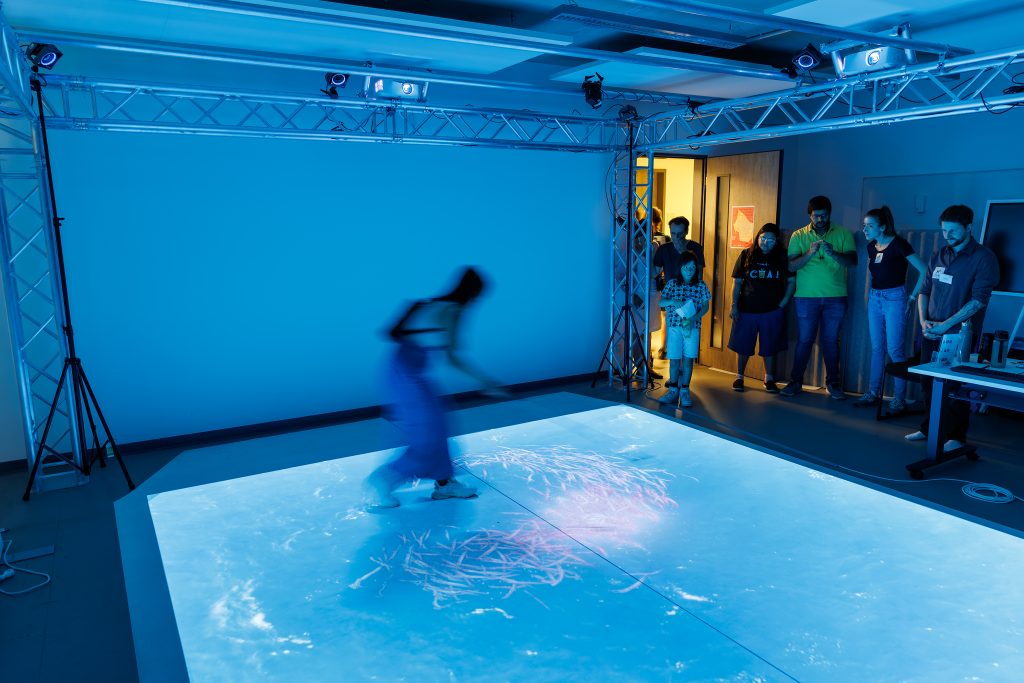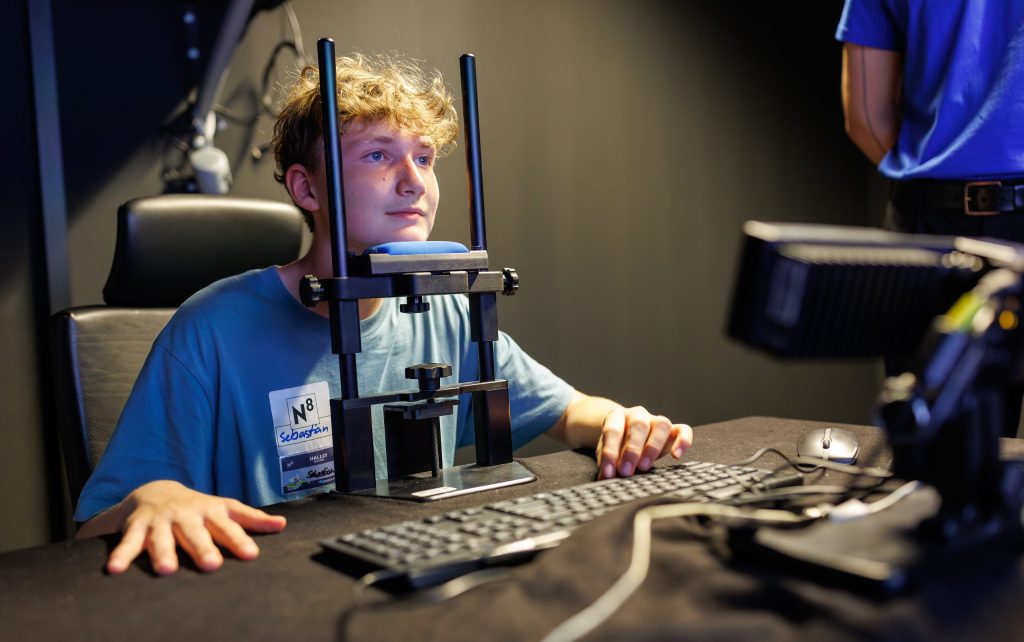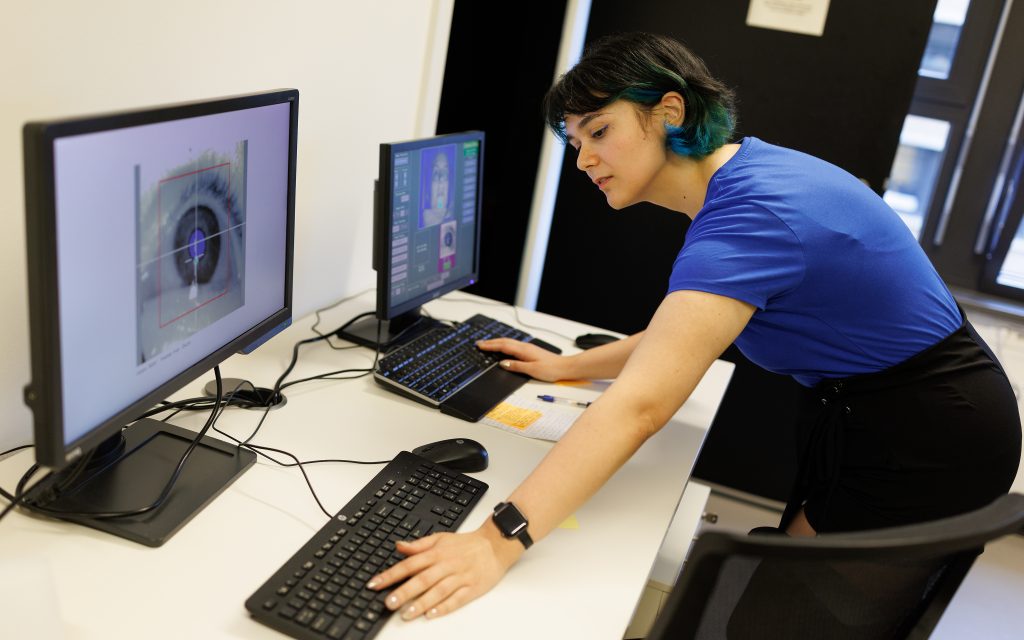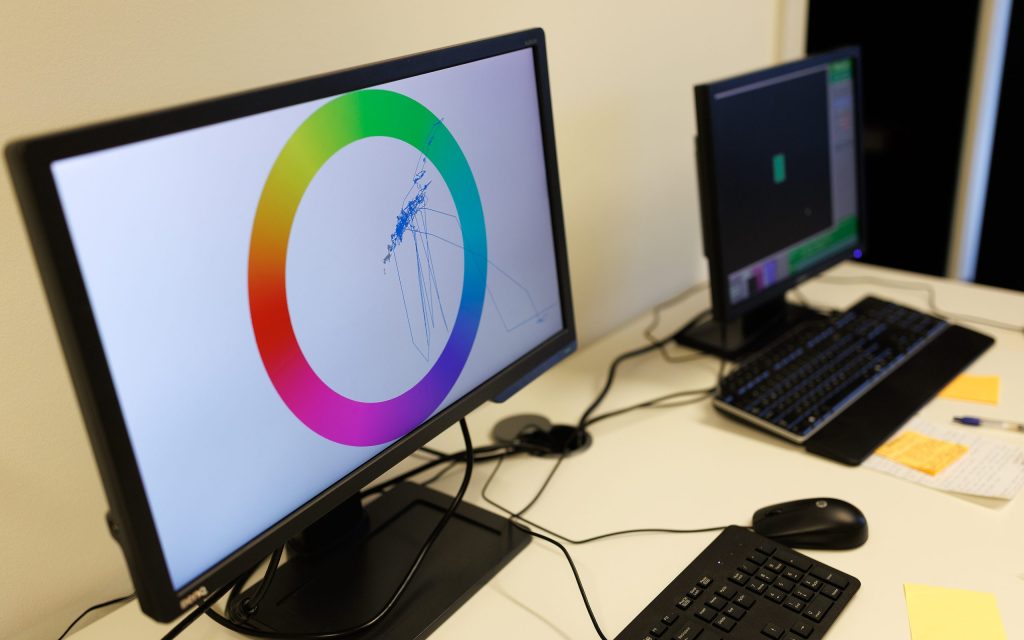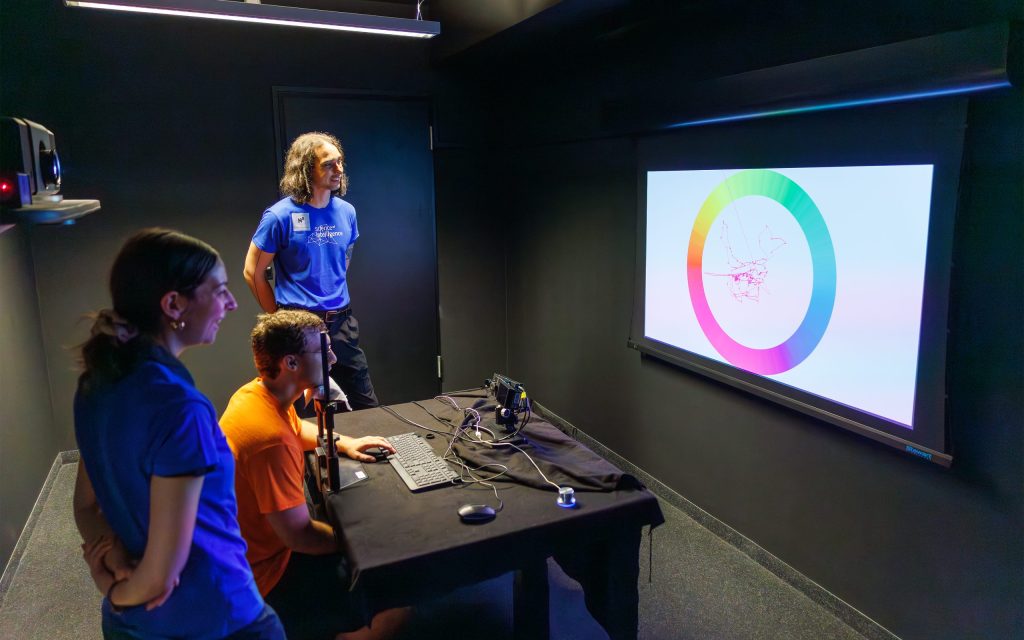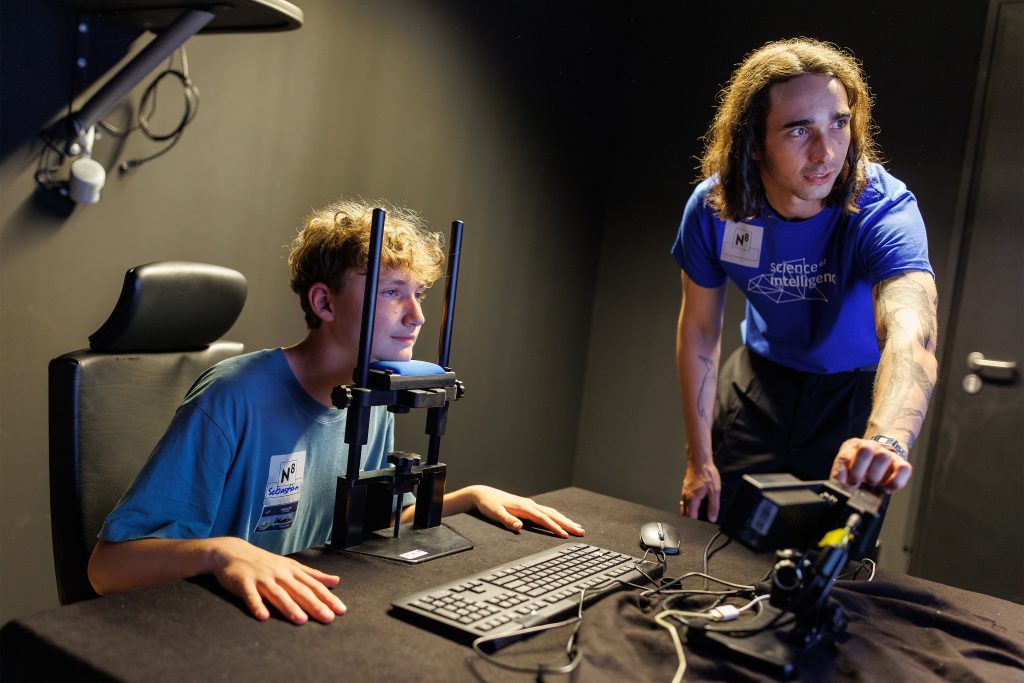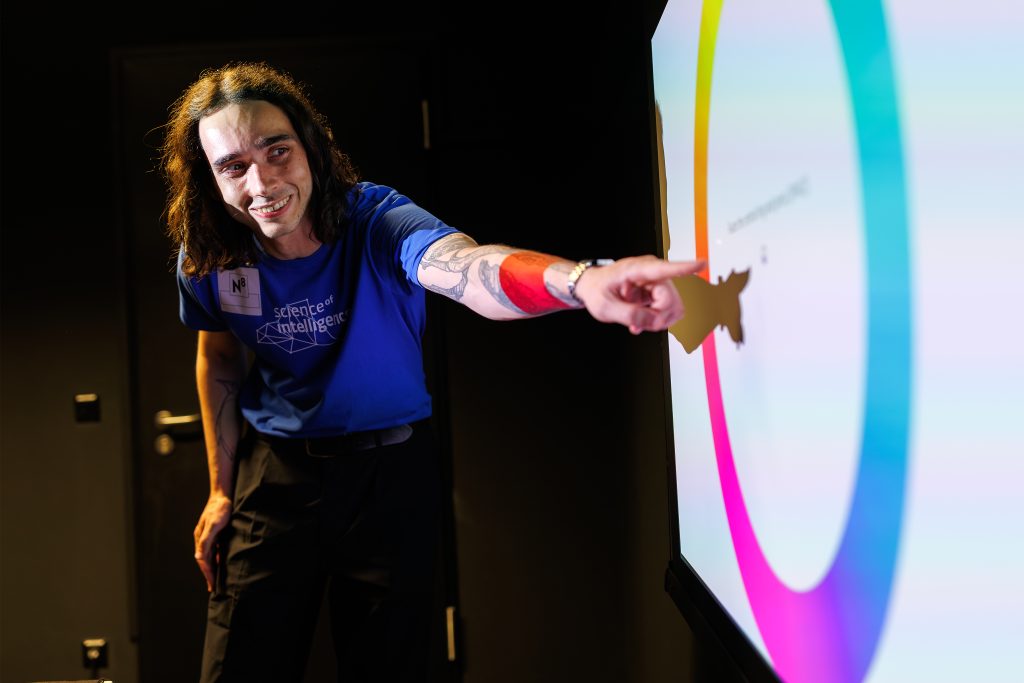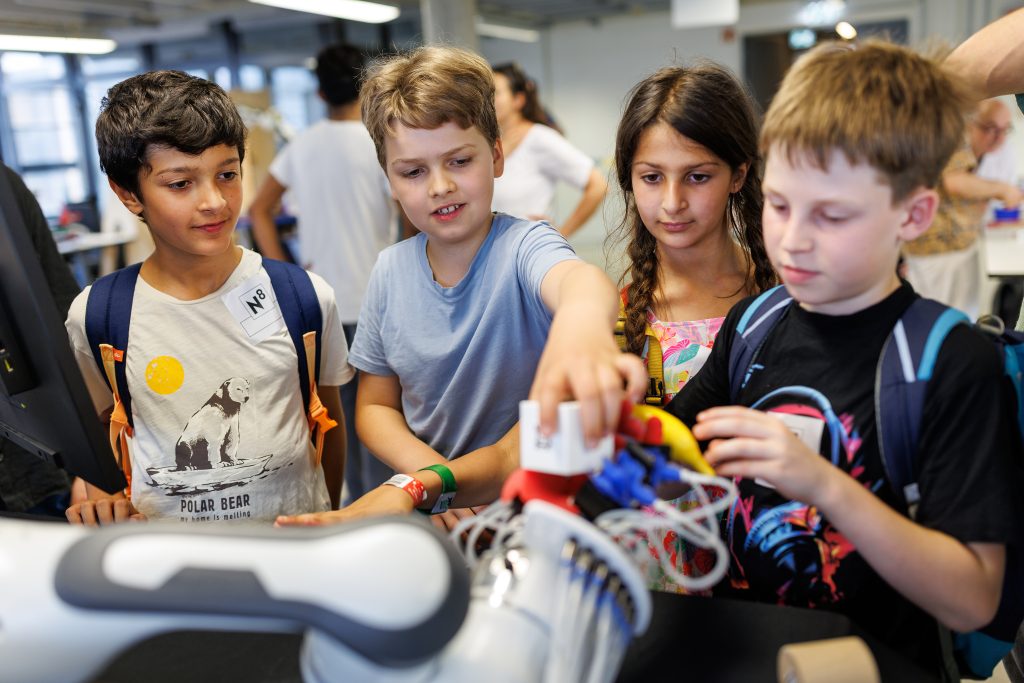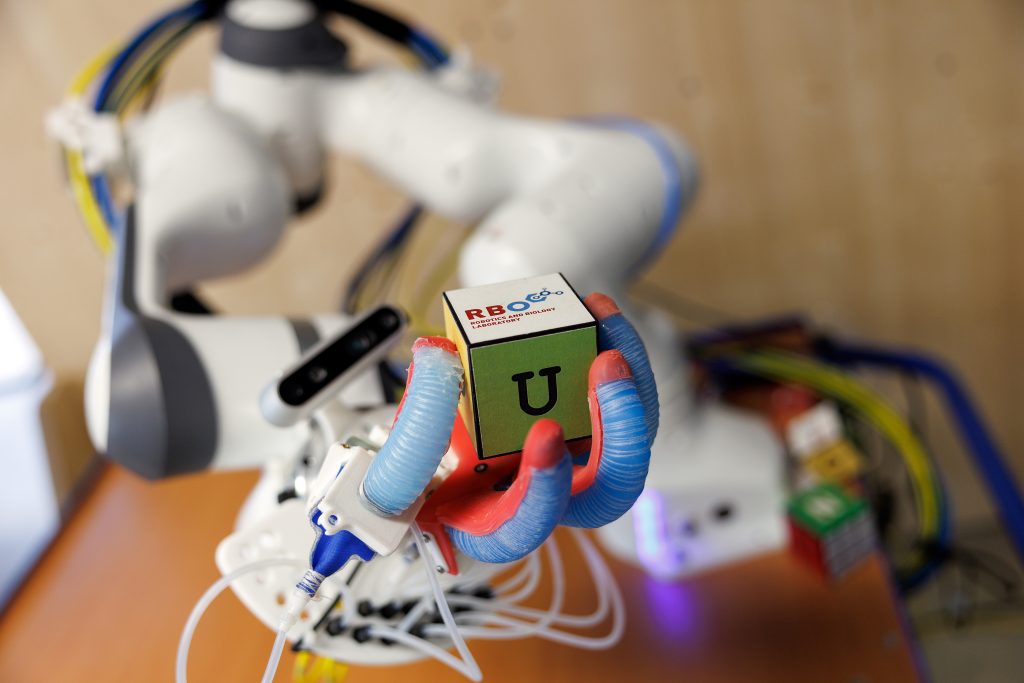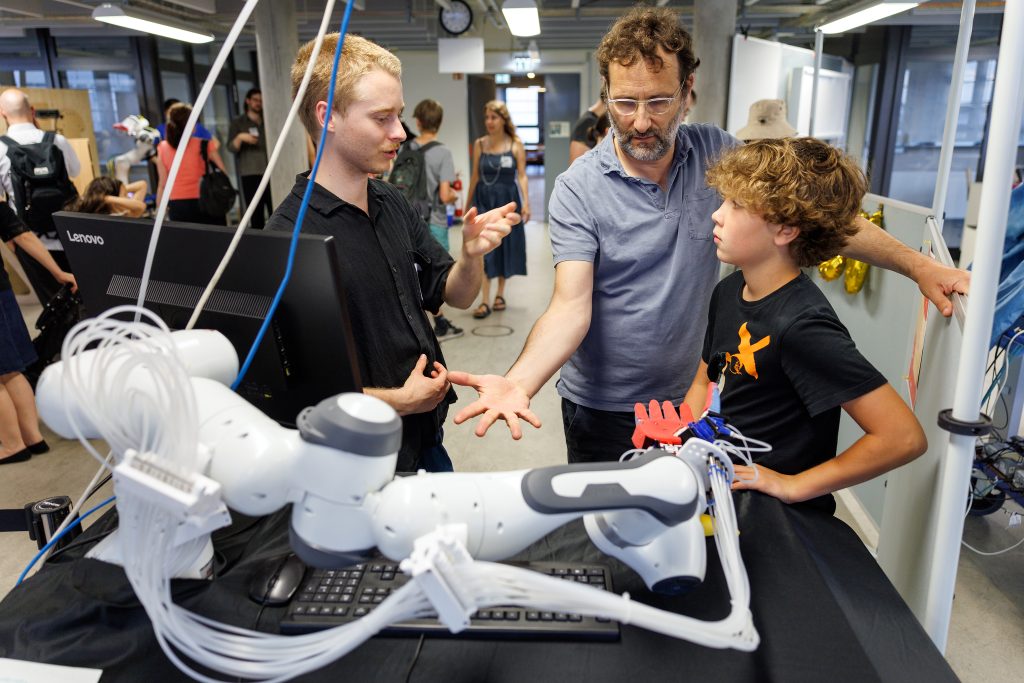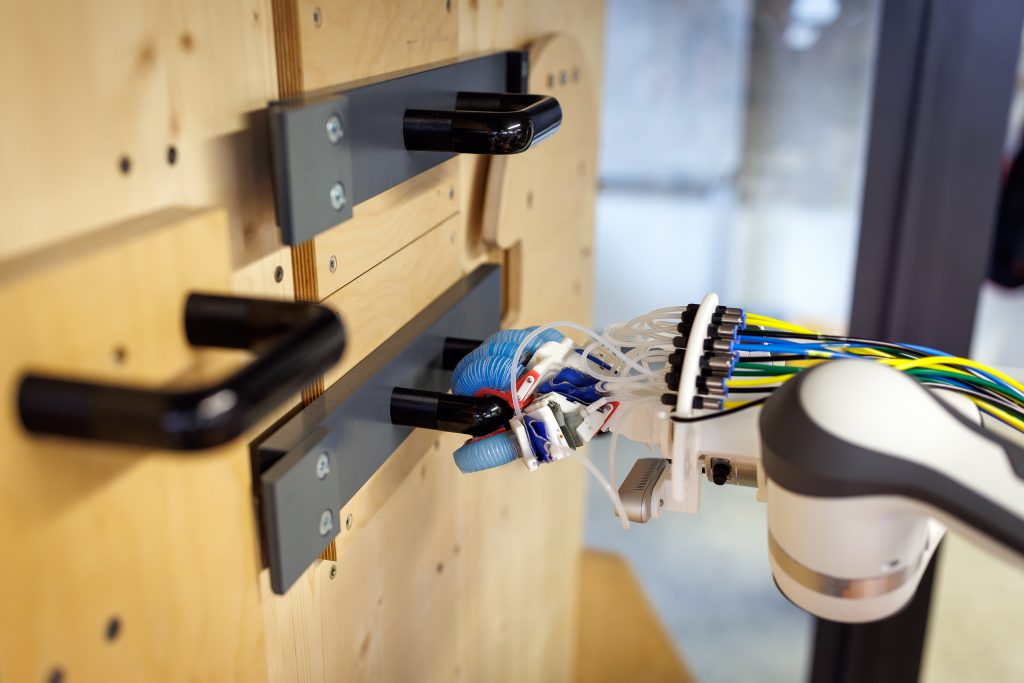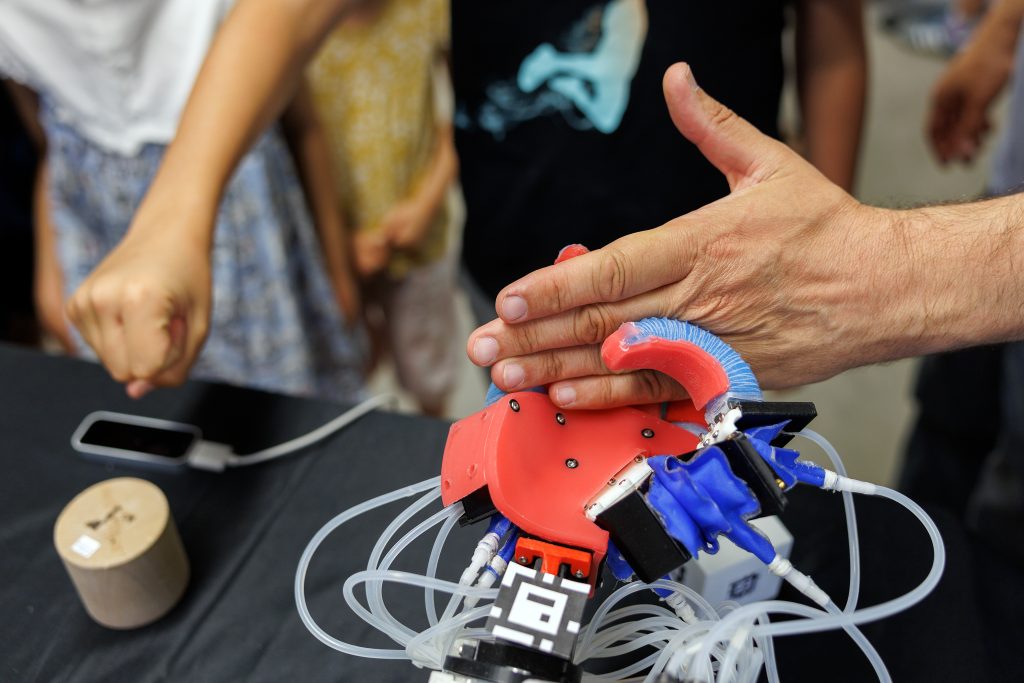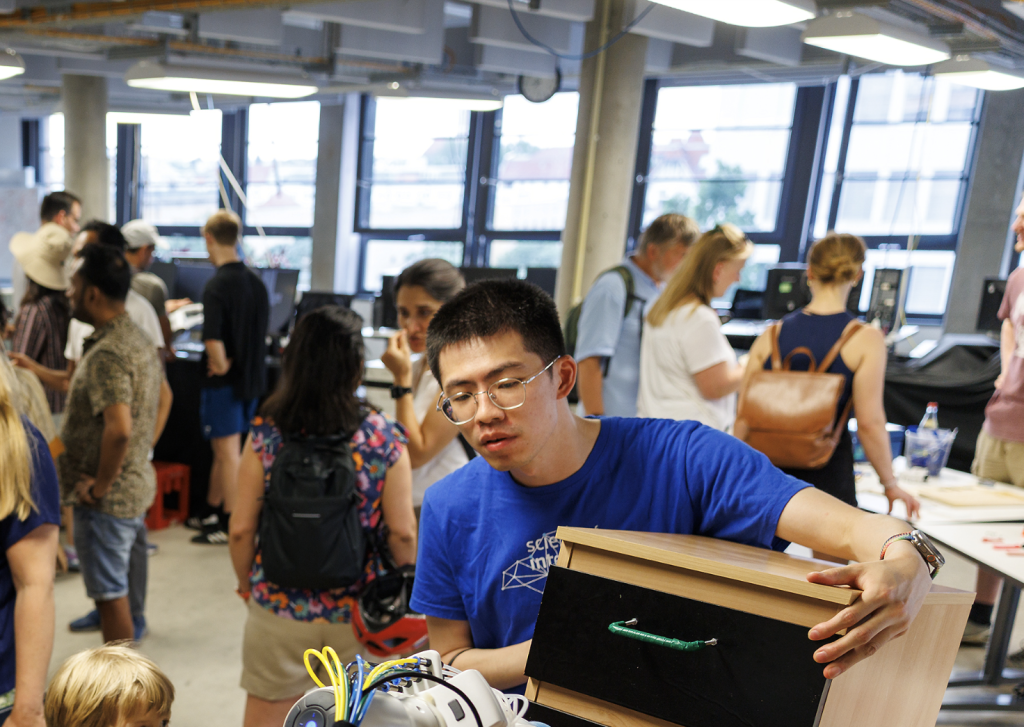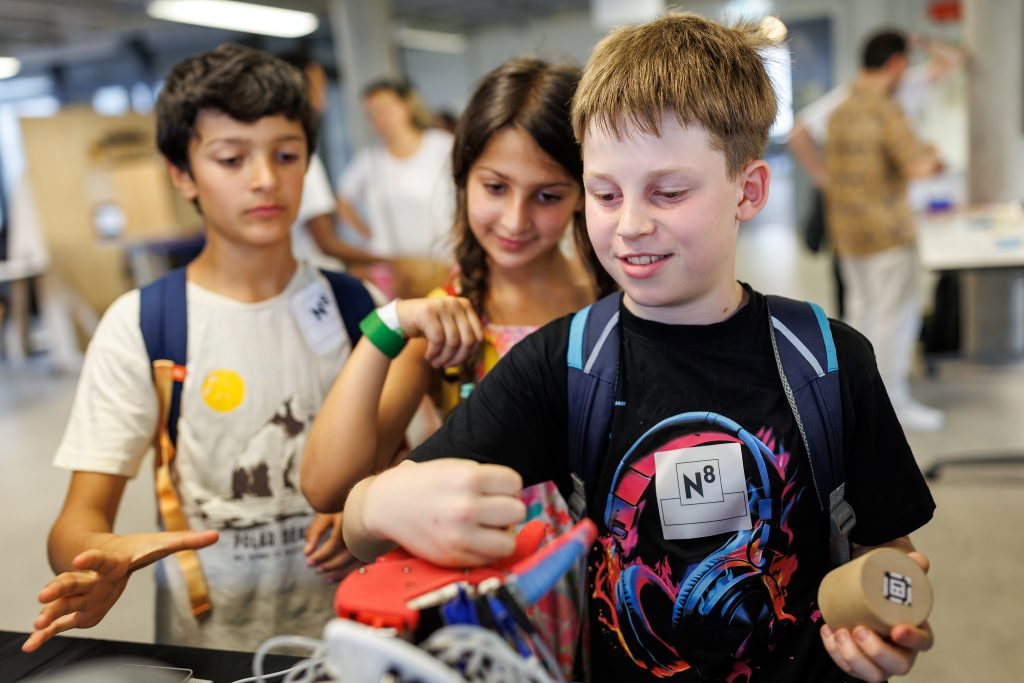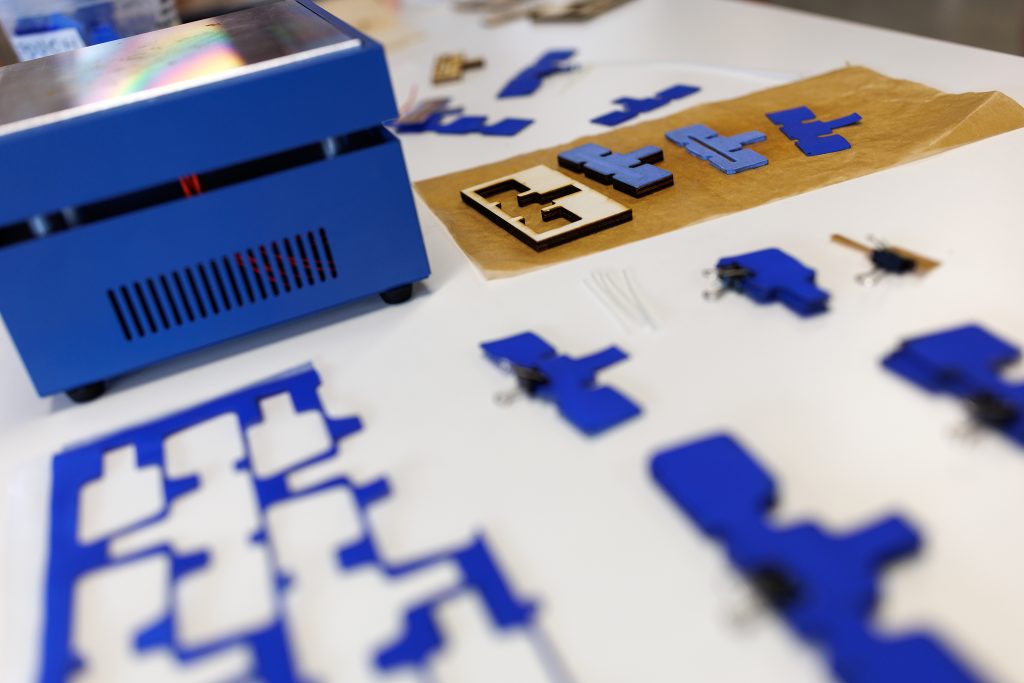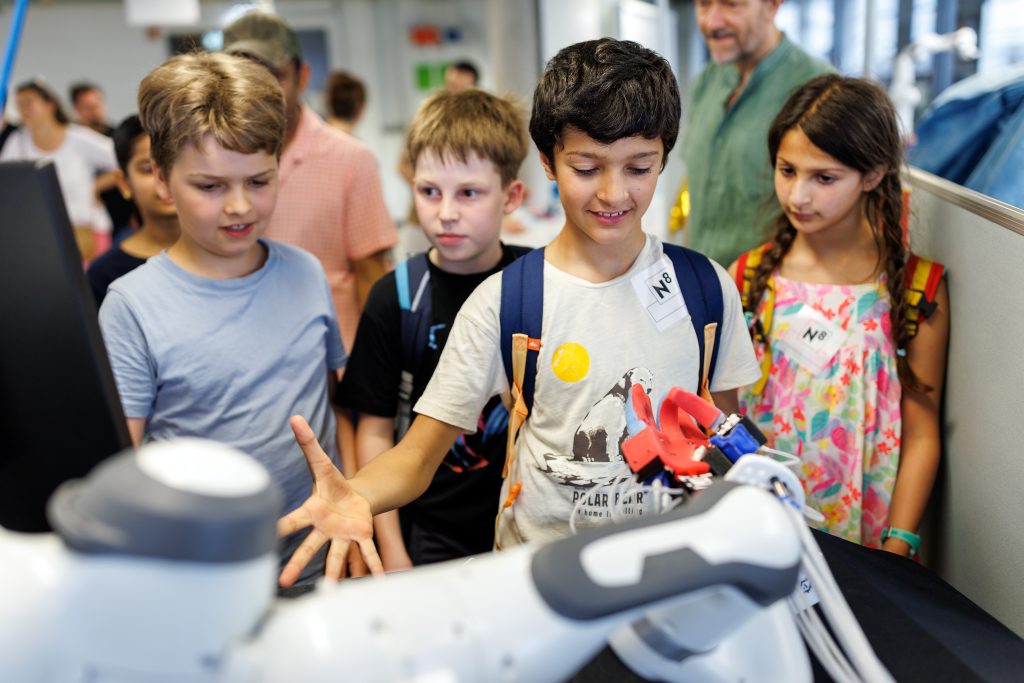What a night! Reporting back from the LNDW at SCIoI
What could be more exciting than an entire night dedicated to science experiments? An entire night dedicated to scientists at SCIoI! This year’s Lange Nacht der Wissenschaften at SCIoI featured a very mix variety of events, from robotics demonstrations for the whole family to experiments on decision making, games involving interactive fish projections, eye-movement games and optical illusions, and a very interesting talk on collective intelligence. The entire evening saw a constant flow of families with children, students looking for study inspiration in the field of intelligence, seniors who want to learn more about the advances of AI, and curious citizens. Meanwhile at the main building of the TU Berlin, SCIoI got together with the other seven Berlin clusters for its annual Excellent Pub Quiz, which also turned out to be a great success.
Here’s an overview of our events:
Collective behavior in the spotlight
How can group structure influence the spread of behavior? To answer this compelling question, Maryam Karimian presented a digital demo in the SCIoI Discovery Lab. “I walk visitors through the concept of behavioral contagion,” explained Maryam during the event. “In my digital demonstration I show them how the systematic manipulation of certain factors can have an impact on the dynamics of collective behavior.” The lab also featured SCIoI’s very popular interactive fish projection, a favorite among children and adults alike. As researchers Palina Bartashevich, David Mezey, and David James explained it, the game is essentially a fish hunt: There’s an ocean projected on the floor, and an interactive school of fish swimming about. With the help of a special stick, visitors take on the predator role and try to catch fish –– or just play with them, to observe their collective behavior in emergency situations. “We’ve been to three different LNDW buildings at TU today,” said 10-year-old Ayan, “but the fish projection was by far the best event.” And for those who wanted to learn more about why these fish behave the way they do, Pawel Romanczuk held 30-minute talks on swarm intelligence and on how math can help understand it.

